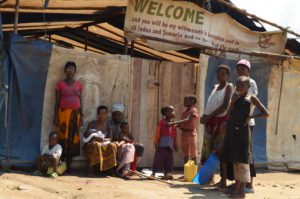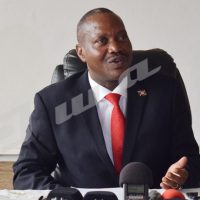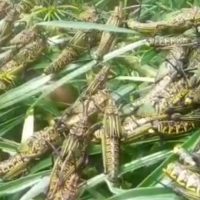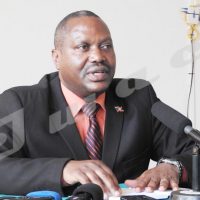The Ministry of Foreign Affairs, in collaboration with the United Nations, has officially launched the Burundi Humanitarian Response 2017, on 19 January in the capital of Bujumbura. The plan aims at assisting about three million people who are vulnerable due to food insecurity and other challenges.

Of the three million people in need, the plan targets one million of them
“It is estimated that about 3 million, at least a quarter of Burundi’s population of 11.2 million, are in need of humanitarian assistance”, says Suzanne Ngo Mandong, the UNFPA representative.
In recent months, Burundi has faced deterioration in the socio-economic situation, characterized by worsening in the living conditions of the affected populations, particularly in access to basic services, their livelihoods as well as the protection of their socio-economic rights. “These situations, combined with natural disasters, have increased humanitarian needs, such as access to water, food security, access to essential health and education and other services”, she says.
Since April 2015, Burundi has experienced a period of socio-economic unrest which continues to evolve. In this regard, the main donors reduced their direct budgetary support, which had negative repercussions on the economic situation of Burundi. Compared to 2015, the 2016 national budget for water, sanitation and hygiene has been reduced by 72%, health by 54% and education by 30%.
The Humanitarian Response Plan is an outline of what is needed in Burundi, and an estimate of the cost. So the UN and government of Burundi are calling for $73m to fund Burundi’s humanitarian response plan in 2017. Of the three million people in need, the plan targets one million of them considered the most vulnerable. They include children, women, the elderly, internal displaced persons, returnees and Congolese refugees. “An amount of $73.4 million is needed to address the most urgent needs of these vulnerable people”, she says.
Alain Aimé Nyamitwe, the Minister in charge of Foreign Affairs says the deterioration of the socio-economic situation is due to two major causes, namely the natural disasters and the reduction of direct aid to the Burundi Government, which impacted vulnerable people supported by the government. “It is the 10th time that the Burundi Government has launched this Humanitarian Response plan”, he says. It started in 2000, was suspended in 2007 and relaunched in 2016. “
Nyamitwe says the Humanitarian Response Plan 2016 was estimated at $ 62 million and the additional cost for 2017 is due to the alarming and increasing figures of vulnerable people suffering from the food insecurity. “I called on the International community to support Burundi. This plan needs to be funded for the benefit of the vulnerable people”, he says.
Some challenges for achieving the goals
The non-governmental organizations are finding it harder to move around and carry out the work due to administrative measures.
On behalf of the UN Coordination on Humanitarian Affairs, Virginia Arribas says some of these factors have prevented them from achieving their goals. She says the procedure for obtaining visas has become increasingly complicated for organizations.
Since May 2015, NGOs and associations have to make their financial transfers via the central bank of Burundi, which prevents these organizations from keeping control of internal financial flows. In addition, she says, for moving around, the personal of those NGOs internal movement must be accompanied by a representative of a ministry which limits their missions, which are often urgent.
A resident in Muyange says she goes three days without eating. “We did not harvest anything due to drought”, she says. Tharcisse Niyongabo, Governor of Bubanza Province, says about 3000 families are suffering from hunger in Bubanza.
About 90% of Burundians live on agriculture, but about 35% do not have anywhere to cultivate, according to a local NGO, Parcem.


















 IWACU Open Data
IWACU Open Data

